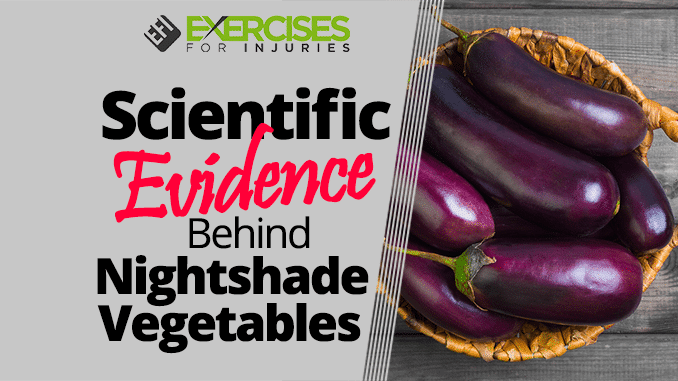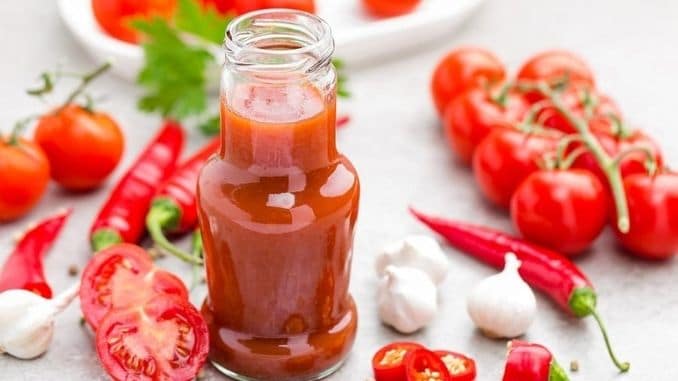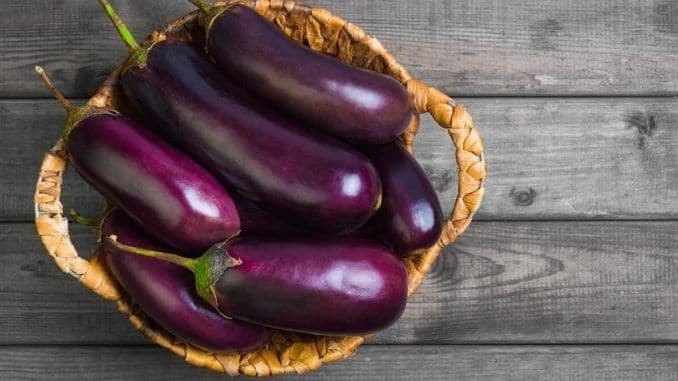
There’s a lot of controversy surrounding the so-called “nightshade” vegetables. Do they worsen arthritis? Are they good for you at all? Are they poisonous? Plus, what do they have to do with solanine toxicity? In this article, we’ll take a close look at the scientific data behind this group of vegetables and how they might affect your health.
For those with food sensitivities, allergies, autoimmune disease, inflammatory bowel disease, leaky gut syndrome or arthritis, these vegetables may influence your symptoms.
What Are Nightshade Plants?
The Solanaceae, or nightshades, are a diverse family of flowering plants. There are more than 2,700 different species of nightshade plants. Included among the species are herbs, vines, flowers, shrubs and trees. Some nightshades are also important agricultural crops, medicinal plants and spices.
Tobacco also belongs to this family of plants. Atropa belladonna or “deadly nightshade” has been used for medicinal purposes, but it can also be poisonous and may even cause hallucinations. It’s not exactly clear where the name “nightshade” comes from. Some believe that the name is derived from the Latin verb solari, which means “to soothe.” This suggests a soothing sensation some might feel when these plants are eaten.
What Are Nightshade Vegetables?
Among the nightshade plants are several common vegetables used in kitchens all around the world. These include:
- Potatoes
- Tomatoes
- Eggplant
- Chili peppers and bell pepper
Despite the diversity of these vegetables, they all contain one substance in common: alkaloids. Potatoes contain an alkaloid called solanine and, in tomatoes, the substance is called tomatine. Capsaicin is the alkaloid that helps make peppers spicy.
Of historical interest, these vegetables weren’t even considered foods until the 1800s. Instead, they were used in witchcraft ceremonies.
Are the Alkaloids Found in Nightshades Harmful?
Alkaloids, if taken in large amounts, can have very strong effects on the body. However, the amount of these substances in nightshade vegetables is not enough to cause toxicity. Still, in some cases, solanine can accumulate in the body and be released in times of stress. Some reactions to excess solanine might be nausea, vomiting, abdominal pain, diarrhea and headache.
For all practical purposes, you would have to eat several pounds of tomatoes or potatoes to ingest enough solanine to make you sick. Still, be careful with green tomatoes and potatoes that have been sitting around and are starting to sprout. The green color indicates a higher level of alkaloids. If you eat green potato skins, you might end up getting sick. Typically, a reaction occurs around eight hours after eating and ends around 24 hours later.
Do Nightshades Increase or Decrease Inflammation?
Some claim that these vegetables make their arthritis worse. However, many of these foods have been shown to have anti-inflammatory properties. So, who’s right? Maybe both.
For those that are hypersensitive to solanine, then nightshades might cause a problem. On the other hand, for most people, nightshades either do not affect inflammation or may even provide a benefit. You might think of it like an antibiotic allergy. If you have pneumonia, an antibiotic works wonders for you. But if you are allergic to the antibiotic, you have two problems instead of one.
What Might Be Some Signs of Nightshade Allergy or Intolerance?
In some cases, you might be allergic to the alkaloids found in nightshade vegetables. If this is the case, you may have symptoms similar to those with gluten intolerance or celiac disease. These symptoms could be:
- Bloating
- Diarrhea, constipation or foul-smelling feces
- Abdominal pain
- Headaches
- Fatigue
- Skin disorders
- Depressed mood or anxiety
- Weight loss
- Anemia
- Autoimmune disorders
- Joint and muscle pain
Here, we can see where some of the confusion arises around nightshade vegetables. In people who are not sensitive, these foods cause no problems at all. In fact, they are probably beneficial. But, in those who are intolerant, nightshades can cause numerous problems.
If you do have any of these symptoms above, it might be worth eliminating nightshade vegetables from your diet. Then, see if there is any change in your symptoms. Obviously, you should also consider whether or not you have a gluten intolerance as a cause. In any case, you should consult with a healthcare specialist about your symptoms and how to determine their cause.
Are There Any Other Nightshade Vegetables?
Potatoes, tomatoes, eggplant and peppers are the most common nightshade edibles. However, there are other less-common vegetables that are included in this class of plants. These are:
- Okra
- Tomatillos
- Blueberries
- Ground cherries
- Paprika
- Capsicum
Are There Any Other Foods to Be Aware Of?
If you’ve been paying attention, you’ll notice that it’s not the food category that is the problem. Instead, the alkaloids, like solanine, cause bothersome symptoms. There are other foods that contain solanine which you should also be aware of:
- Gooseberries
- Goji berries
- Huckleberries
- Sorrel
- Pepino melons
Also, be on the lookout for places where potato starch may be used in cooking or medications. Some food thickeners, fillers and baking powders may include potato-based ingredients. Plus, you might be using some spices that contain ground-up peppers in them that might contain alkaloids. So, read the labels and, if the ingredients say “spices” or “peppers,” then beware.
What Is Solanine Toxicity Syndrome?
Those who are intolerant to solanine may have symptoms similar to those with gluten intolerance. The average adult daily intake of solanine is approximately 13 milligrams. The average daily excretion is 5 percent on day one and 1 to 2 percent per day from day two onward.
For an adult who eats a typical Western diet, it’s estimated then that the amount of solanine carried in the body is about 50 grams. If you have a diet rich in nightshade vegetables, the amount could be much higher. Solanine is stored in nearly every organ of the body, especially in the thyroid gland.
In addition to the intolerance symptoms described above, solanine toxicity could cause symptoms like:
- Chronic joint pain, arthritis or joint inflammation
- Calcium loss and osteoporosis
- Arteriosclerosis: “clogged” blood vessels due to calcium deposits
- “Leaky gut” or irritable bowel syndrome
- Appendicitis
- Birth defects, including spina bifida
- Migraines
- Calcium and vitamin D malabsorption
How Long Does It Take for the Body to Get Rid of Solanine?
If you think you have solanine toxicity, you should stop eating solanine-containing foods. Your body will excrete the chemical gradually, and how long it takes depends on how much solanine is stored in your body. Some estimates indicate that it could take weeks or months. However, if these foods are affecting your health, you may see an improvement within a few weeks. Again, ask your doctor about any of these symptoms since they may be caused by other illnesses.
Remember, solanine toxicity syndrome is different than acute poisoning. Toxicity happens over the long term with the accumulation of the substance in your body. This occurs in persons who are intolerant to solanine. Acute poisoning might happen to anyone who eats too much solanine at once, such as ingesting green potato skins.
Nightshades Are Very Healthy
Even though some people may be intolerant to nightshade vegetables, they are quite healthy for you in most cases. For example, tomatoes are rich in vitamin C, potassium, folate and vitamin K. They contain antioxidants that may play a role in protecting your heart and preventing cancers. Also, when men have a diet rich in tomatoes and broccoli, this may help prevent prostate cancer. When breastfeeding women eat tomato products, especially tomato sauces, the nutritional quality of their breast milk improves.
Eggplants are a great source of vitamin C, vitamin K, vitamin B6, thiamin, niacin, magnesium, phosphorus, copper, dietary fiber, folic acid, potassium and manganese. This vegetable is also known for its powerful health benefits. Eggplant may help cardiovascular function, prevent cancers, improve brain health and even prevent osteoporosis. Some even consider eggplant a “superfood” due to its dense nutritional value.
Peppers are excellent sources of vitamins A and C, potassium, folic acid and fiber. These sweet or spicy vegetables are well known for their health benefits as well. For instance, bell peppers may help preserve eye health and prevent cancers. Some even claim that they stimulate melatonin production, which may help you sleep better.
Conclusion
Nightshade vegetables have a history steeped in mystery. Unfortunately, they’ve gotten a bit of a bad rap lately. Of course, if you are intolerant to alkaloids, then you should avoid this food group. If not, however, the nightshades are packed with nutrients that help keep you healthy.
If you are looking for ways on how to bring back your natural vitality while relieving chronic inflammation and boosting the natural fat-burning hormones of your body, then check out the Best Foods that Rapidly Slim & Heal in 7 Days program, here!




